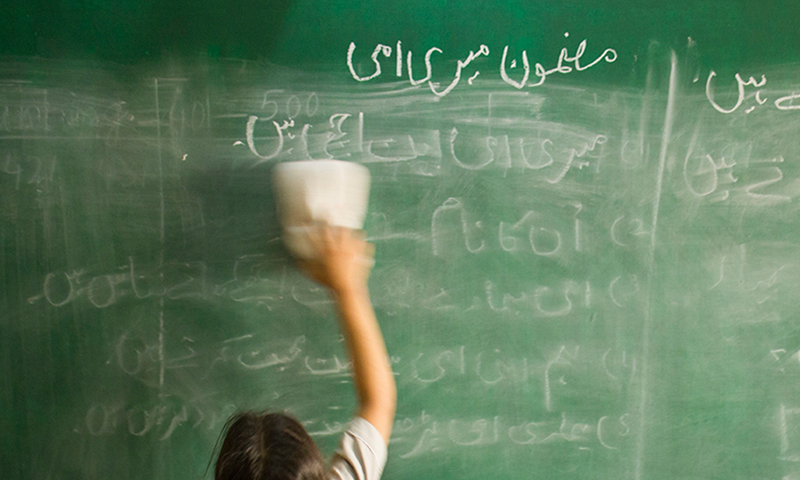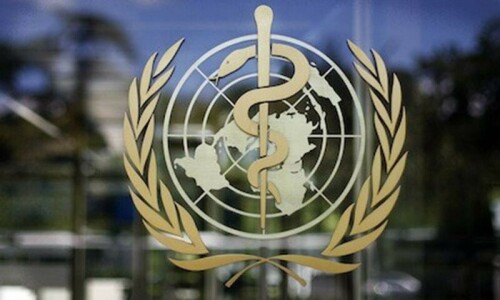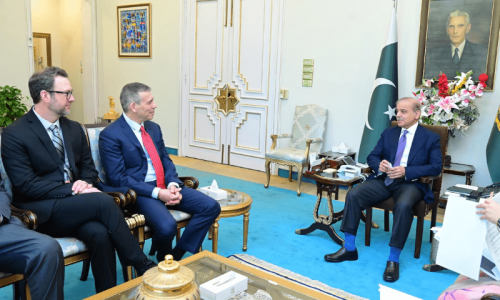DHAKA: Children in Bangladesh flooded back into classrooms on Sunday as schools reopened after 18 months, one of the world’s longest coronavirus shutdowns.
The resumption came after Unicef warned that prolonged school closures during the Covid-19 crisis were worsening inequities for millions of children across South Asia.
In the capital Dhaka, students at one school were welcomed with flowers and sweets, and told to wear masks and sanitise their hands. Some hugged each other in excitement.
“We are really excited to be back at school,” 15-year-old Muntasir Ahmed said as he entered the campus. “I am hoping to physically see all of my friends and teachers, not through a laptop window today.”
At the gate, school officials checked the body temperatures of students before allowing them to enter.
The school’s vice principal, Dewan Tamziduzzaman, said he “didn’t expect such a big number to be turning up on the first day”.
Only 41 per cent of Bangladesh’s 169 million population have smartphones, according to the country’s telecom operators’ association, which means millions of children cannot access online classes.
Even with smartphones, students in many of Bangladesh’s rural districts do not have the high-speed internet access usually required for e-learning.
Unicef warned in a report released on Thursday that the pandemic has accentuated “alarming inequities” for more than 430m children in the region.
“School closures in South Asia have forced hundreds of millions of children and their teachers to transition to remote learning in a region with low connectivity and device affordability,” Unicef’s regional director, George Laryea-Adjei, said in a statement.
“As a result, children have suffered enormous setbacks in their learning journey.”
In India, 80pc of children aged 14-18 years said they learnt less than when they were in a physical classroom, according to Unicef.
Among children aged between six and 13 years, 42pc said they had no access to remote learning.
“Their future is at stake,” Deepu Singh, a farmer in India’s Jharkhand state, said last week of his children aged nine and 10.
The pair have not been to school in a year and have no internet access at home, Singh said, adding: “I do not know English. I cannot help him (my son), even if I want to.”
Students in the rest of the region were similarly impacted, Unicef reported.
In Pakistan, 23pc of young children had no access to any device for remote learning.
Some towns in Nepal have been broadcasting radio lessons due to the lack of internet access.
Published in Dawn, September 13th, 2021















































